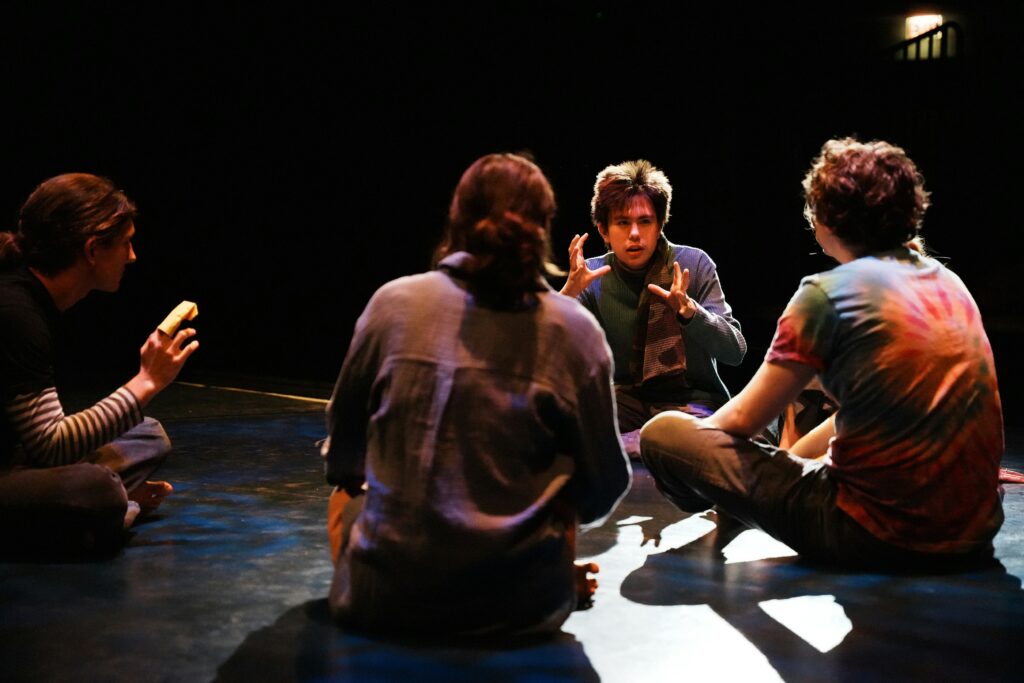The Most Effective Way to Hold Auditions for Community Theatre
Auditions are one of the most exciting parts of launching a community theatre production — but without a great audition system, they can quickly become overwhelming. Between managing limited time, coordinating volunteers, and welcoming a wide range of experience levels, casting for a show is both an art and a logistical challenge.
But it doesn’t have to be stressful. With the right audition system, auditions can be an inspiring and well-organized process that attracts great talent and sets the tone for a positive rehearsal experience.
Here are five tried-and-true strategies for holding effective auditions in the community theatre world:
1. Clarify What You’re Looking For — and Communicate It
Before you post that audition notice, take time to clarify what you’re actually seeking for each role. Go beyond character names and ages — what kind of presence or energy should the actor bring? What skills are essential (e.g. harmony singing, physical comedy, a specific accent)? Which ones are flexible?
Then, communicate that clearly in your audition announcement. This helps potential cast members feel prepared and sets realistic expectations. If you’re open to creative casting or double-casting, say so upfront.
2. Design an Audition Flow That Works for Everyone
Community theatre auditions often happen after work hours, on tight schedules, and in less-than-ideal venues. The key is balancing efficiency with flexibility.
- Use time slots to reduce waiting and chaos
- Group auditions (e.g., for ensemble roles) to keep things moving
- Build in short breaks for your creative team to regroup
- Leave room at the end for walk-ins — because they’ll show up!
If you’re working with young actors or people who are auditioning for the first time, consider offering a brief orientation or “what to expect” email beforehand. It makes the experience more inclusive and less intimidating. Your audition system should enable that.
3. Create a Welcoming and Encouraging Atmosphere
For many people, community theatre is a passion, not a profession. That means auditions are not just about talent — they’re about relationships, trust, and community spirit.
- Greet people warmly and thank them for coming
- Keep things running on time when possible
- Offer clear instructions before the audition starts
- Encourage them to do their best, even if they’re nervous
When you foster a kind, respectful space, performers will bring their best selves — and they’ll be more likely to come back for future shows.
4. Use a Free Audition Management System to Stay Organized
Keeping everything on paper or in your head can quickly spiral into chaos. A professional audition management platform can streamline everything — and save you work. .
With the right audition system (such as TicketPeak), you can:
- Schedule audition slots and avoid overbooking
- Collect important info like conflicts, experience, and vocal range
- Take real-time notes during auditions
- Export cast lists or contact info for callbacks and announcements
- Ask custom questions (e.g., “Are you comfortable dancing?” or “Would you accept a non-speaking role?”)
This kind of tool isn’t just for Broadway — it saves you time, keeps your team aligned, and ensures no promising performer gets lost in a sea of paper forms. TicketPeak’s audition platform is free even if you don’t use ticketing.
5. Document Everything — Don’t Rely on Memory Alone
After a long night of auditions, it’s easy to forget who sang what or who had that great comic timing. Especially in community theatre, where you’re likely juggling names and faces from multiple past shows.
TicketPeak allows directors to enter detailed notes directly into each auditioner’s profile – a huge time-saver when planning callbacks or casting future shows. Record strengths, concerns, and possibilities for each actor. Psychologists have shown that decision quality declines over long periods of judgment ( Danziger et al., 2011) — making real-time notes essential.
Final Thoughts
Auditions are more than just casting decisions — they’re a reflection of your theatre’s values, organization, and spirit. In community theatre, where people are donating their time and heart, the audition experience can make or break whether someone stays involved long-term.
By preparing thoughtfully, using tools to stay organized, and creating a space that respects the performer’s effort, you’ll set your show up for success — and build a stronger, more connected theatre family along the way.
Want to simplify your auditions for free? TicketPeak ‘s free audition management tool helps theatres run auditions – even if you don’t use our ticketing platform. Schedule a demo or create an account with us if you’re looking to learn more.


